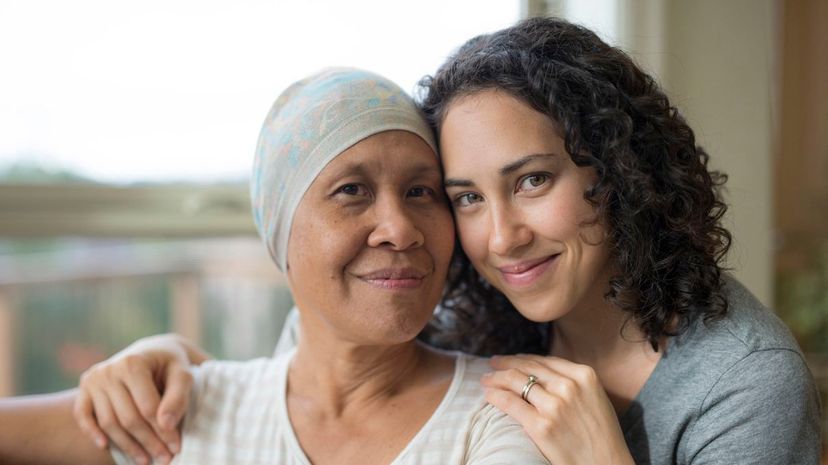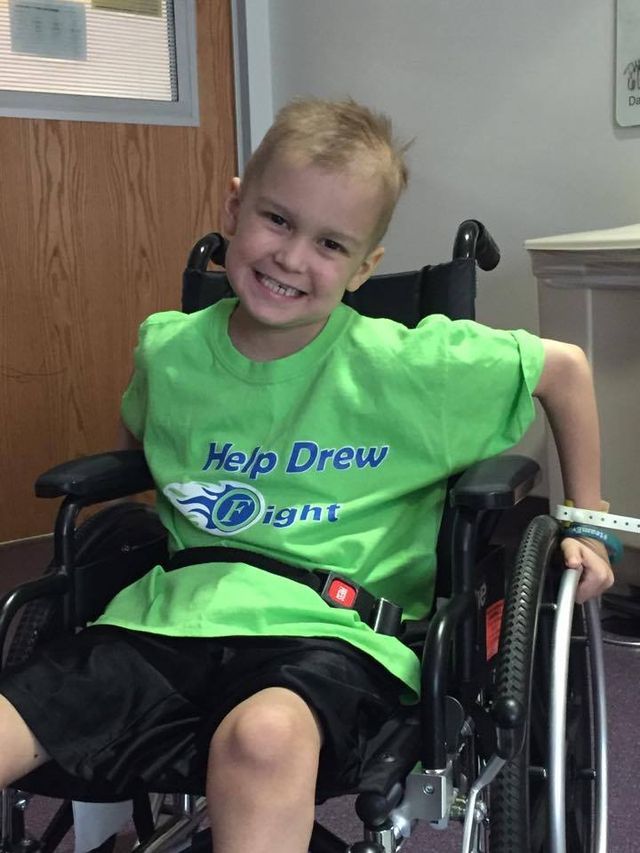
When Jessica Brandon's youngest son, Drew, was diagnosed with stage 4, T-cell lymphoblastic lymphoma (an aggressive form of non-Hodgkin's lymphoma) in 2016, she had a lot to worry about. But her concerns didn't include chores like mowing the lawn, making dinner, cleaning house or shuttling her two older kids where they needed to be, however. That's because her family and her Acworth, Georgia community rallied instantly to provide support wherever they could, most of the time without asking or being asked.
Brandon, an elementary school teacher who spent months staying in the hospital with her son during his first touch-and-go days of treatment and complications, was floored by the support. The parent of one of her former students established a GoFundMe page to cover medical costs. "I'm grateful she did it [without asking] because I would have said no," she recalls. The community also created T-shirts and bracelets with a special logo emblazoned on them, with proceeds benefiting his care fund. "The money collected was thousands of dollars and a huge blessing to our family," Brandon says. "Not only was the money helpful, but seeing the shirts out and about in the community lifted our spirits."
Advertisement

Despite the clear benefits of Drew's story, many people are hesitant to jump right in to provide help to people dealing with a serious illness or medical crisis. Often, they don't know what to do. So, they turn to phrases like, "Let me know what I can do to help," or "Don't hesitate to call on me." No matter how well-intentioned, such blanket statements are unlikely to amount to much, and can even place a burden on the patient or caregiver.
"I heard plenty of 'let me know if there's anything I can do' and I've grown to hate the sentence," emails Jenna Oltersdorf, of Austin, Texas, whose mother was facing a terminal illness. "It comes from a good place, but rarely do people ever act on it. When we're in severe distress, the last thing most people can think about is delegation."
Eleven-year cancer survivor Heather Von St. James, of Roseville, Minnesota, concurs wholeheartedly. "I love when people take charge and just do things," she explains in an email interview. "My mind is already so full of stuff, and especially if it is at a time during crisis! It is darn near impossible to figure out what you need, everything is in chaos."
"When people are in crisis the logical part of their brain doesn't function as well, so asking them what they need will commonly be a waste," says Gennifer Morley, a psychotherapist in Boulder, Colorado, who does a lot of grief counseling. "They will not even be able to think of what they need. The other thing that can happen is a deep sense of exhaustion, so that helping you help them, just isn't worth the energy."
But not everybody is going to want someone to show up unannounced on their doorstep with a casserole. They may already have a freezer full of them, for one thing. "Well-meaning friends may inadvertently make things harder for the patient by insisting on doing what THEY want to do to help when it may not actually be something desired by the patient," says Connecticut-based psychologist Dr. Marni Amsellem in an email interview. "If someone is not feeling well, they may prefer to be alone; thus a visit may actually pose a burden because the patient feels that he or she needs to entertain, to stay awake when they really need to nap, etc., which can unintentionally make the patient feel stressed."
So how do you decide what to do? "The best thing to do is say, 'I will help in any way that I can.' Then offer two to three specific things you would like to do. If they have any interest in one of them, act on it with as little support from them as you can. Food, errands, child care, financial help and just hanging out with [them] in whatever mood they are in are all great offers," says psychotherapist Morley.
Holly Wolf of Reading, Pennsylvania, who's helped family members with cancer, emailed some more ideas:
1. Ask a question with specific information: "Would it be helpful if I made meatloaf, mashed potatoes and green beans and brought it to the house on Wednesday night about 6 p.m.?" This lets the patient or caregiver know exactly what you are planning to do.
2. Give specifics on your availability. "I'm available on Wednesday and Friday afternoons from 1-5. Would you like me to take you to a doctor's appointment or would running errands be more helpful?"
3. Make it easy to accept help. "Offering to get a cleaning service is great, but if the sick person or caregiver has to call and make all the arrangements and clean up a bit before they arrive that's not helpful," says Wolf. So, once you get the green light, set up the appointment.
4. Offer to stay with the sick person and let the caregiver go. "Don't require an explanation of where the caregiver is going or what s/he is doing — just give him/her the time [you'll be there]," say Wolf.
When in doubt, saying something is always better than saying nothing. "Don't disappear on a friend just because their new medical status makes you feel uncomfortable or you don't know what to say," says Samantha Markovitz, a Mayo Clinic certified wellness coach. "Starting with 'Let me know if I can help' can be a springboard into a situation that is new for both of you. Just don't let your support end there."
Advertisement
